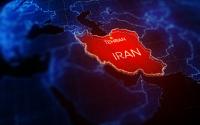12 January 2006Bill McKibben
The one and only time I ever saw my mother become aggressive in public went like this. We were out as a family for a weekend leaf-peeping drive, an impulse apparently shared by most of the rest of New England, because the traffic along New Hampshire's Kancamagus Highway was endless 90-degree gridlock. Every once in a while, however, somebody would zoom happily by in the breakdown lane. We watched them with a kind of mounting zealous anger. It would never have occurred to my parents to emulate them -- that would have been wrong. But eventually my mother, sitting in the passenger seat, could take it no longer. She rolled down the window of our Plymouth, stuck out her head, shook her finger at one of the passing lawbreakers, and yelled ... "Unpleasant!"
 How can anyone ignore this? Photo: iStockphoto. | I'm by nature a conflict avoider too -- if you're thinking of cutting in line at the supermarket, you couldn't ask for an easier mark than me. But twice last week I acted in ways entirely out of character. I signed a letter criticizing Robert F. Kennedy Jr. for his New York Times op-ed opposing the big Cape Wind project. And I wrote a few paragraphs disparaging the most powerful of my local environmental groups, the Adirondack Council, for the way they'd worked on clean-air issues. Both criticisms were respectful -- I am my mother's son -- but they were also stern. I wouldn't have enjoyed being on the receiving end of either one (though a lifetime of book writing does tend to inure you to bad reviews). |
They were also, at some level, divisive. In both cases, you could truthfully say I was willing to inflict a little damage on an important part of the environmental movement. It doesn't mean, I hope, that I'm growing a mean streak. I think it means something else: that the environmental movement is reaching an important point of division, between those who truly get global warming, and those who don't.By get, I don't mean understanding the chemistry of carbon dioxide, or the importance of the Kyoto Protocol, or something like that -- pretty much everyone who thinks of themselves as an environmentalist has reached that point. By get, I mean understanding that the question is of transcending urgency, that it represents the one overarching global civilizational challenge that humans have ever faced. That it's as big as the Bomb.
Do I think Bobby Kennedy Jr. is a bad environmentalist? No, I think he's a great environmentalist. I've heard him convert 400 Republicans at one fell swoop in the auditorium of my Adirondack high-school gym. Hell, by helping establish the Hudson Riverkeeper, the guy added a whole new class of words to our vocabulary -- now there are baykeepers and airkeepers and summitkeepers. He's sued and written and organized with passion and prowess. But his op-ed on Cape Wind, with its (risible) fear that the windmills might be heard ashore, showed that he hadn't quite understood just how critical the need to get the U.S. off fossil fuels really is.In the face of that need, even possible damage to the livelihoods of commercial fishers is distinctly secondary. If someone were proposing to erect a giant blender in Nantucket Sound so yachtsmen could obtain frozen margaritas more conveniently, then Bobby would be right to object, and the rest of us would go along with him. Instead, they're talking about the nation's first big offshore wind complex, one that would in effect allow residents of Cape Cod to use electricity nine months of the year without emitting a single carbon atom.If we had decades to burn, then he'd also doubtless be right that there's a better site for the thing, and a nicer developer. There's always a better site and a nicer developer. But in the real world, according to Rajendra Pachauri, the chair of the Intergovernmental Panel on Climate Change, we have at most 10 years to reverse this trend. Which means we have to do everything quickly -- hybrid cars and solar panels and compact light bulbs and local food and tree planting. And windmills, lots and lots of windmills, just like off the shores of Europe.In the best of all possible worlds, we'd do everything slowly and carefully -- but this planet is rapidly becoming the worst of all possible worlds, a place that before my daughter dies may well see temperatures exceeding anything since before the dawn of primate evolution. A planet facing hundreds of millions of environmental refugees as a result of rising seas, with heat waves like the one that killed 35,000 in Europe becoming commonplace occurrences. I mean, we went through the usual hurricane alphabet this past year, and got all the way to the Greek letter Zeta.
By the same token, the Adirondack Council has been extraordinarily useful over the years. I've worked with them in the past, and I hope I'll do so again. They have worked hard -- quite rightly -- to battle the acid rain that is killing our lakes and ponds in northern New York. But in those efforts in recent years they've been willing to undercut the rest of the environmental movement, working with the Bush administration on Clear Skies legislation that postponed the battle over regulating carbon dioxide. They were even willing to invite Bush for an Earth Day photo op in the Adirondacks a few years ago, just weeks after he'd reaffirmed that the U.S. was going to have absolutely nothing to do with Kyoto.It's not that everyone needs to work on global warming around the clock. We desperately need riverkeepers and acid-rain activists and people working on water and endangered species and rainforest preservation and wilderness and all the other things that first got most of us into this movement. It's just that when those efforts come into conflict with the imperative need to act urgently on global warming, they have to take second place.Why? Because even if we win every other battle, if we lose this one, it won't make any difference at all. You can "keep" every river and bay and lake and mountain and wilderness, but if the temperature goes up 5 degrees globally, it won't matter. The fish that live there won't be able to survive, the trees that anchor the landscape will die, the coral reefs will bleach and crumble. Even an Adirondacks whose ponds are the correct pH is a pretty sad place if it's an Adirondacks without winter, without hemlocks, without trout. Whatever the particular part of the world that we're each working on, it's still a part of the world. Global warming is the whole thing.None of this is easy. If you've spent your life fighting for birds, it's hard to say "some birds may die in this windmill" (and it's perfectly smart to work with turbine manufacturers and wind developers to minimize that possibility, as many people have). But what we need to say is: every bird, and everything else that we know, is fundamentally at risk in the next few decades. In the name of birds, I want that windmill on my ridge. In the name of wild beauty, I want that windmill out my window.And in the name of doing something about global warming, I'm willing to be a bit of a jerk.
http://www.grist.org/comments/soapbox/2006/01/12/mckibben/index.html






